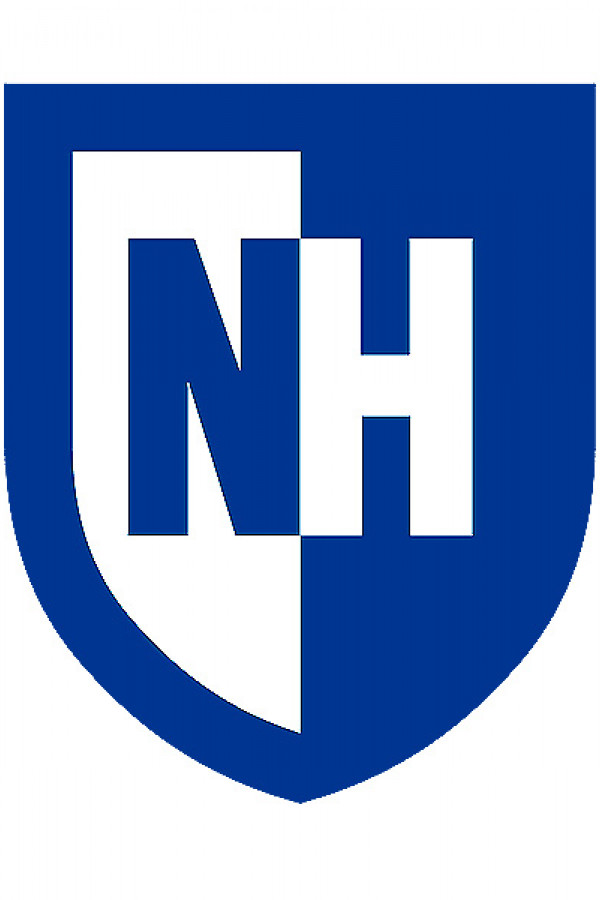The Physics minor at UNH offers a broad introduction to the fundamental aspects of the universe, from subatomic particles to cosmic origins. You'll learn to analyze and solve complex problems, making this minor an excellent complement to majors like education, engineering, business, or other sciences. Whether you're preparing for a career in teaching, science writing, pre-med, pre-law, or technical fields, the UNH physics program equips you with valuable skills and research opportunities with national funding agencies like NASA, the Department of Energy and more in a collaborative learning environment.
What is physics?
The physics minor is tailored to students who want a broad introduction to physics. You can explore fundamental aspects of the universe, from subatomic particles to the origin of the cosmos, and you’ll learn how to approach, analyze and solve complex problems. Combined with majors such as education, journalism, business or other sciences, the minor in physics can serve as preparation for teachers, science writers, pre-med and pre-law students, as well as those wishing to pursue technical careers in industry, research and engineering.
Why study physics at UNH?
The program offers introductory physics in a lecture and studio format —an active learning environment that includes group work and labs all in a single room with a professor and graduate teaching assistants. This style allows for a coherent, connected and supportive experience. You’ll have opportunities to conduct research with physics faculty and other scientists, working on projects funded by NASA, the National Science Foundation, the Department of Education, Department of Defense, National Institutes of Health and other agencies and organizations.
Potential career areas
- Aerospace sciences
- Applied optics
- Business management
- Education
- Engineering research
- Materials research
- Medicine
- Patent and intellectual property law
- Science journalism
Curriculum & Requirements
This program allows students to become more deeply involved in physics without the commitment of a major.
To minor in physics, request a minor advisor at the physics office as soon as possible. Advisors assist in course selection to fit your interests, schedule, and help ensure you have met mathematical and physics prerequisites.
Academic policies related to Minors.
Credit toward the minor will only be given for courses passed with C- or better, and a 2.00 grade-point average must be maintained in courses for the minor.
- Courses taken on a pass/fail basis may not be used for a minor.
- No more than 8 credits used to satisfy major requirements may be used for the minor.
- No more than 2 courses or 8 credits may be from transfer coursework. Any transferred coursework must be approved by the minor coordinator.
For additional details on how to declare a minor, please visit https://www.unh.edu/registrar/academic-records/majors-minors.
The following courses may NOT be used to fulfill minor requirements: PHYS 400, PHYS 401, PHYS 402, PHYS 409, PHYS 501.
Physics minors must take PHYS 407 and PHYS 408 or the equivalent. These two courses are prerequisites for all other physics courses.
| Code | Title | Credits |
|---|---|---|
| Required Courses | ||
| PHYS 407 | General Physics I | 4 |
| PHYS 408 | General Physics II | 4 |
| PHYS 505 | General Physics III | 3 |
| Elective 1 | 4 | |
| Elective 1 | 4 | |
| Total Credits | 19 | |
- 1
Select a four-credit physics course, chosen in consultation with the student's physics minor advisor.
- PHYS 407, PHYS 408, PHYS 505 General Physics III & PHYS 506 General Physics III Laboratory, PHYS 508 Thermodynamics and Statistical Mechanics, PHYS 615 Classical Mechanics and Mathematical Physics I
- PHYS 407 General Physics I, PHYS 408 General Physics II, PHYS 406 Introduction to Modern Astronomy, PHYS 615 Classical Mechanics and Mathematical Physics I, PHYS 616 Classical Mechanics and Mathematical Physics II
- PHYS 407 General Physics I, PHYS 408 General Physics II, PHYS 615 Classical Mechanics and Mathematical Physics I, PHYS 616 Classical Mechanics and Mathematical Physics II, PHYS 703 Electricity and Magnetism I
Note: many physics courses have mathematics prerequisites. Prerequisites are listed in the course descriptions.



































